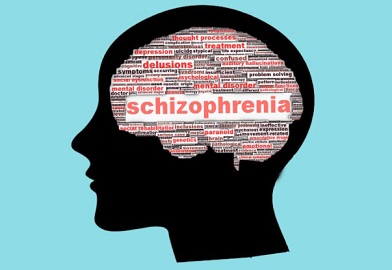Japanese Case Study Shows New-Onset Of Schizophrenia In Adolescent Post COVID-19
Nikhil Prasad Fact checked by:Thailand Medical News Team Jun 21, 2024 1 year, 7 months, 3 weeks, 2 days, 2 hours, 1 minute ago
COVID-19 News: In a recent and alarming case from Japan, a 16-year-old boy developed new-onset schizophrenia shortly after contracting COVID-19. The case, documented by researchers from the Nippon Medical School and covered in this
COVID-19 News report, underscores the potential for severe mental health complications following COVID-19, even in previously healthy adolescents.
 Japanese Case Study Shows New-Onset Of Schizophrenia In Adolescent
Japanese Case Study Shows New-Onset Of Schizophrenia In Adolescent
Post COVID-19
It should be noted that many studies and cases reports have also emerged in the past showing that COVID-19 can trigger schizophrenia and many other neuropsychiatric issues.
https://www.thailandmedical.news/news/breaking-covid-19-news-italian-researchers-warn-that-sars-cov-2-infections-can-lead-to-new-onset-psychosis-expect-more-loonies-walking-around
https://www.thailandmedical.news/news/covid-19-news-german-study-shows-that-covid-19-is-also-triggering-the-new-onset-of-psychiatric-disorders-in-many
https://www.thailandmedical.news/news/italian-researchers-warn-that-covid-19-infections-can-cause-catatonia-a-neuropsychiatric-condition
https://onlinelibrary.wiley.com/doi/10.1002/hsr2.978
https://www.mdpi.com/2075-4426/13/1/104
https://www.elsevier.es/es-revista-revista-psiquiatria-salud-mental-286-avance-resumen-schizophrenia-covid-19-pandemic-a-narrative-S1888989123000150
https://casereports.bmj.com/content/14/4/e242538
https://www.mdpi.com/1648-9144/59/2/408
https://www.medrxiv.org/content/10.1101/2023.12.05.23299473v1
https://www.dovepress.com/post-covid-19-infection-psychosis-could-sars-cov-2-virus-infection-be--peer-reviewed-ful
ltext-article-IDR
The Patient’s Journey: From COVID-19 to Catatonia
The young patient had no significant psychiatric history except for a brief period of insomnia before his high school entrance exams. After contracting COVID-19, he initially experienced typical symptoms such as fever and a mild cough. However, four days into his illness, his behavior became erratic. He exhibited incoherent behavior, such as rushing out of his house and laughing uncontrollably, which escalated into a catatonic state.
Upon hospitalization, the boy displayed fever, rigidity, catalepsy, intermittent tremors, and incoherent speech. Blood tests, MRI scans, and cerebrospinal fluid examinations ruled out encephalitis and other common causes of his symptoms.
The Role of Neuroinflammation and COVID-19
COVID-19 is known to disrupt immunity and can have profound effects on mental health. Studies have shown that the virus can increase the risk of psychotic disorders even two years after infection. In this case, the patient’s psychosis persisted even after the viral load decreased and the inflammatory response subsided.
Researchers hypothesize that COVID-19 may facilitate the development of schizophrenia through neuroinflammation and the reduction of gray matter in the brain. The patient’s MRI showed diminished gray matter volume in the right medial temporal lobe, a region associated with schizophrenia.
Managing Catatonia and Psychosis
The patient’s condition improved with benzodiazepines, which alleviated his catatonia. However, he continued to experience hallucinations and delusions. Despite receiving antiviral therapy and medications to manage inflammation, his psychotic symptoms worsened.
Schizophrenia was diagnosed based on his symptoms, including delusions of control, a Schneider’s first-rank symptom. Treatment with olanzapine, an antipsychotic, significantly improved his condition. However, cognitive impairments persisted, requiring repeated education to aid memory retention.
Understanding the Mechanisms: From Immunity to Brain Structure
The onset of schizophrenia in this patient is thought to be linked to the immune response triggered by COVID-19. The virus promotes a shift towards Th2 immunity, which is associated with increased antibody production and complement activation. This immune response may lead to excessive synaptic pruning, a process implicated in schizophrenia.
Additionally, COVID-19 affects the renin-angiotensin system (RAS), which plays a role in brain function and schizophrenia. The virus’s interaction with this system can lead to microglial activation and synaptic elimination, further contributing to the development of schizophrenia.
The Broader Implications
This case highlights the need for careful management of infectious diseases in adolescents. The potential for severe mental health outcomes, such as schizophrenia, necessitates vigilance and comprehensive care. COVID-19’s impact on mental health is a growing concern, and understanding its mechanisms can help in developing effective interventions.
Conclusion
The case of new-onset schizophrenia in an adolescent following COVID-19 infection provides critical insights into the neuropsychiatric consequences of the virus. It underscores the importance of monitoring and managing mental health in young patients recovering from COVID-19 to prevent long-term complications.
The case report was published in the peer reviewed Journal of Nippon Medical School.
https://www.jstage.jst.go.jp/article/jnms/advpub/0/advpub_JNMS.2025_92-301/_article
For the latest
COVID-19 News, keep on logging to Thailand Medical News.
Read Also:
https://www.thailandmedical.news/news/breaking-covid-19-news-various-studies-and-case-reports-validate-that-sars-cov-2-can-cause-bipolar-disorder
https://www.thailandmedical.news/news/covid-19-news-sars-cov-2-infections-can-trigger-onset-of-bipolar-disorder
